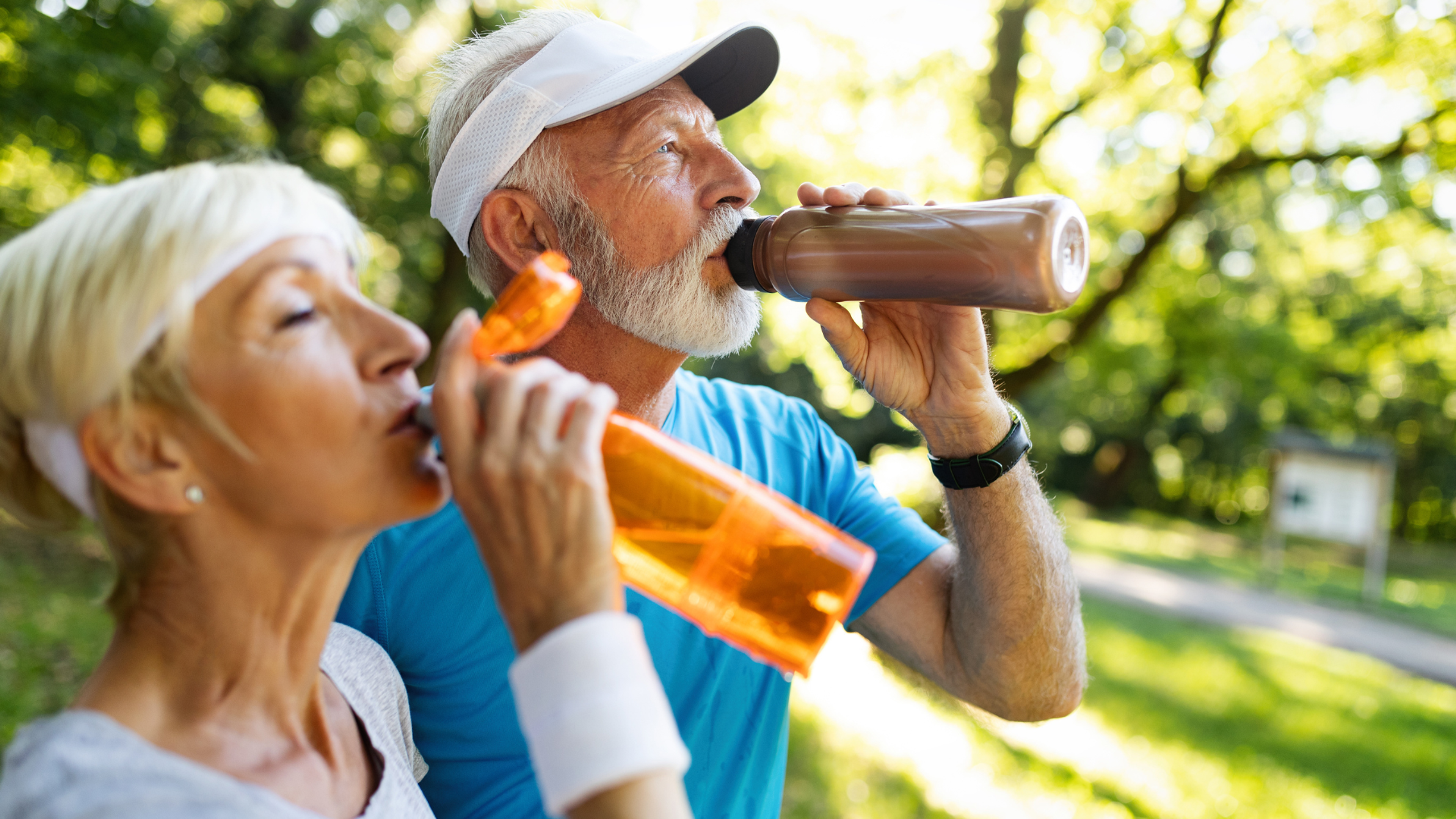The Brain-Boosting Benefits of Staying Hydrated

It’s easy to overlook, but staying hydrated is one of the most important things you can do for your brain. While we often focus on diet, exercise, and sleep to support cognitive health, hydration plays an equally vital role. Hollie Hristov, FNP, a specialist in Preventive Neurology, explains, “About 75% of your brain is actually made up of water. So cognition and long-term brain health can absolutely be affected if you're not properly hydrated.”
How Dehydration Affects the Brain
Even mild dehydration can disrupt cognitive performance and mood. “You can feel more cognitively fatigued if you're not adequately hydrated,” says Hristov. “You can see that in attention and in focus.” It can also impair memory. “You may have the inability to encode memories, both long and short-term,” she adds.
Dehydration can also lead to elevated stress hormones. “You may also have higher cortisol levels, which can in turn cause heightened stress responses,” Hristov explains. This cycle of dehydration and stress can wear on the brain and body over time.
Signs You’re Not Drinking Enough Water
While thirst is an obvious indicator, there are other signs of dehydration that are easy to miss, including:
- Dry mouth or dry skin
- Skin that doesn’t return quickly when pinched
- Fatigue
- Weakness
- Headaches
- Dizziness or lightheadedness, especially when standing up
- Brain fog
- Poor concentration and memory
- Mood swings
- Trouble making decisions
How Much Water Should You Drink?
“For optimal brain health, the amount of water you want to drink a day is probably two to three liters, ideally,” Hristov recommends. At a minimum, she advises aiming for at least six to eight cups a day.
Some people find it easier to start their day with water. “When you wake up in the morning, you're probably gonna drink a full glass of water. Some people add lemon, some people do hot water. That's probably the best way to start your day,” she says.
Throughout the day, consistency matters more than drinking large amounts at once. “You wanna drink the majority of your water throughout the day,” says Hristov.
She adds a helpful tip for those who wake up frequently at night to use the bathroom: “If you're one of those people that has to do that, maybe don't drink so much water after a certain amount of time at night or after dinner, so you're not getting up and down all night.”
When You Might Need Electrolytes
There are times when water alone may not be enough. “If you are in an environment where you are doing a lot of activity, like if you're at the gym and you're working out a lot, or if you live in a really hot environment, that's when you might wanna think about adding electrolytes to your water,” says Hristov.
You might also need extra fluids and electrolytes if you’re losing fluids due to illness and experiencing fever, nausea, vomiting, or diarrhea. “In those cases, basically when you're losing more fluids than usual, you might wanna think about adding electrolytes,” Hristov advises.
Staying Hydrated as You Age
“As we age, we may not have the drive to drink as much fluids as we did when we were younger,” Hristov explains. “But as we age it's super critical to stay hydrated because you're more at risk for urinary tract infections.”
For older adults, she recommends setting reminders. “We've had patients set reminders throughout the day to drink water, even if it's just like a small sip here and there,” she says.
If plain water isn’t appealing, there are plenty of ways to stay hydrated:
- Add flavor with lemon, lime, or orange slices
- Eat hydrating foods like cucumbers, watermelon, and oranges
- Drink herbal teas
- Include soups and broths in meals
- Try hydrating candies or lozenges designed to boost hydration
The Takeaway
“Just staying consistently hydrated is key,” says Hristov. “Finding what works best and just kind of going with that and switching, and just trying new things just to get that water intake in.”
Whether through water, hydrating foods, or creative alternatives, maintaining good hydration is one of the simplest and most effective ways to support brain health and overall well-being.
To learn more about the benefits of hydration, watch our conversation with Hollie Hristov, FNP, in the video above.
By Alicia J. Barber, PhD
Disclaimer
The Video and Written Educational Content included on this site is not intended to be a substitute for professional medical advice, diagnosis, or treatment. Always seek the advice of your physician or other qualified health provider with any questions you may have regarding a medical condition. Never disregard professional medical advice or delay in seeking it because of something you have read or seen on the Site.
The information contained in the Educational Content posted represents the views and opinions of the individual in the recording and does not necessarily represent the views or opinions of IND. The mere appearance of Educational Content on the Site does not constitute an endorsement by IND or its affiliates of such Content.
The Educational Content has been made available for informational and educational purposes only. IND does not make any representation or warranties with respect to the accuracy, applicability, fitness, or completeness of the Content. IND does not warrant the performance, effectiveness or applicability of any sites listed or linked to in any Content. IND hereby disclaims any and all liability to any party for any direct, indirect, implied, punitive, special, incidental or other consequential damages arising directly or indirectly from any use of the Content, which is provided as is, and without warranties.